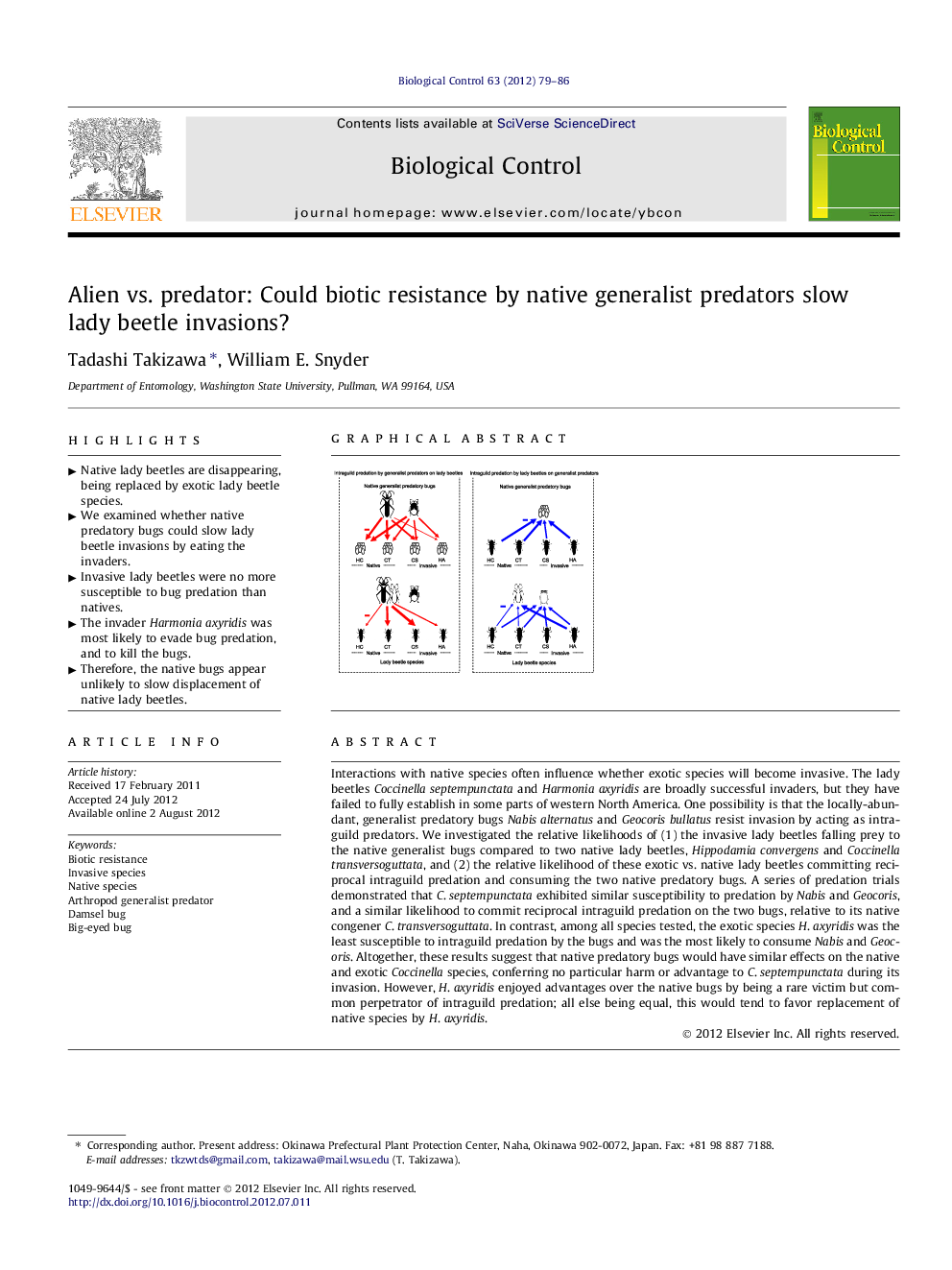| Article ID | Journal | Published Year | Pages | File Type |
|---|---|---|---|---|
| 6372888 | Biological Control | 2012 | 8 Pages |
Interactions with native species often influence whether exotic species will become invasive. The lady beetles Coccinella septempunctata and Harmonia axyridis are broadly successful invaders, but they have failed to fully establish in some parts of western North America. One possibility is that the locally-abundant, generalist predatory bugs Nabis alternatus and Geocoris bullatus resist invasion by acting as intraguild predators. We investigated the relative likelihoods of (1) the invasive lady beetles falling prey to the native generalist bugs compared to two native lady beetles, Hippodamia convergens and Coccinella transversoguttata, and (2) the relative likelihood of these exotic vs. native lady beetles committing reciprocal intraguild predation and consuming the two native predatory bugs. A series of predation trials demonstrated that C. septempunctata exhibited similar susceptibility to predation by Nabis and Geocoris, and a similar likelihood to commit reciprocal intraguild predation on the two bugs, relative to its native congener C. transversoguttata. In contrast, among all species tested, the exotic species H. axyridis was the least susceptible to intraguild predation by the bugs and was the most likely to consume Nabis and Geocoris. Altogether, these results suggest that native predatory bugs would have similar effects on the native and exotic Coccinella species, conferring no particular harm or advantage to C. septempunctata during its invasion. However, H. axyridis enjoyed advantages over the native bugs by being a rare victim but common perpetrator of intraguild predation; all else being equal, this would tend to favor replacement of native species by H. axyridis.
Graphical abstractDownload full-size imageHighlights⺠Native lady beetles are disappearing, being replaced by exotic lady beetle species. ⺠We examined whether native predatory bugs could slow lady beetle invasions by eating the invaders. ⺠Invasive lady beetles were no more susceptible to bug predation than natives. ⺠The invader Harmonia axyridis was most likely to evade bug predation, and to kill the bugs. ⺠Therefore, the native bugs appear unlikely to slow displacement of native lady beetles.
